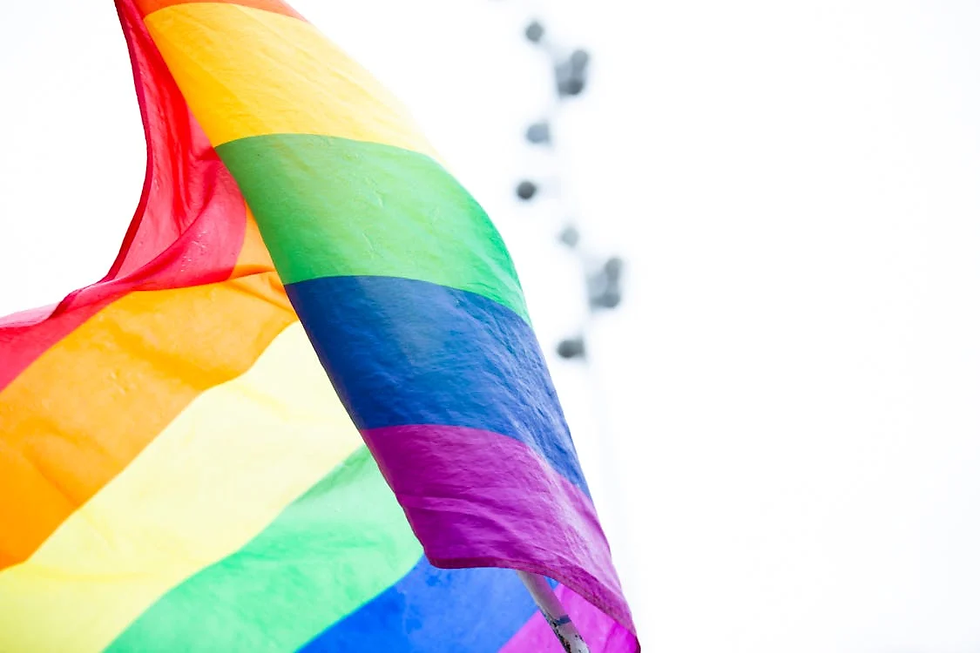What Amy Coney Barrett’s Appointment Could Mean for the LGBTQ+ Community
- Zac Cash

- Oct 18, 2020
- 4 min read
Updated: Dec 23, 2024
In this Op-Ed, Zac Cash writes about the imminent nomination of Amy Coney Barrett to the US Supreme Court. This article discusses what Barrett's election could mean for LGBTQ+ rights, as at least two Justices have already expressed their desire to overturn the Obergefell v. Hodges ruling. Barrett has been criticised for her association with Alliance Defending Freedom, and for her comments on transgender women.
When we talk of the Western world, what do we think of? Aspects of culture such as theatre, music and food? The influence of religion? Political notions such as democracy and freedom of speech? Or the freedom to love, without fear of persecution, hate, fear or feelings of disdain? This belief seems to be integral within our constantly developing, dynamic, and diverse societies. Laws such as the 2015 Obergefell v. Hodges ruling in the United States, and the 2013 Same-Sex Couples Act in the UK are crucial to the values that so many defend and hold dear today.

However, in the US, this could be about to change. On the 18th of September, Supreme Court Justice Ruth Bader Ginsburg died from complications relating to pancreatic cancer. Her death left a gaping hole in the US Supreme Court that needed to be filled. Democrats were anxious to wait until the result of the US election, which would ultimately decide the allegiance of the new Justice. A Republican appointment by Trump in the closing weeks of his first term would sway the Supreme Court heavily in the favour of the Republicans. Many key Republicans even went as far as promising that no decision would be made until the result of the election was clear, yet have contradicted their statements by supporting a Republican candidate. One example of this is Senator and president pro tempora (the second highest ranking official of the United States Senate) Charles Grassley of Iowa, who laid down a principle that Supreme Court nominees should not be advanced in election years, yet said two weeks ago that he would vote to confirm a Trump pick.
Trump’s candidate came in the form of Amy Coney Barrett. Barrett is a favourite amongst the Christian right and the social conservatives, and her association with these groups is supported by her strong anti-abortion views, her criticism of Obama’s 2010 Affordable Care Act and her literal approach when reading and interpreting legal texts. These views are often worrying to those of a liberal inclination: concerns that are only going to heighten with Barrett's seemingly inevitable confirmation.
The Obergefell v. Hodges ruling required all states to issue marriage licences to same-sex couples and to recognise same-sex marriage. However, that ruling is now being put into question, after two Republican and Conservative-minded Supreme Court Justices named Samuel Alito and Clarence Thomas suggested that marriage equality, and thus the Obergefell ruling, should be overturned. They argued that the ruling did not respect individual state legislature, and that it restricted religious autonomy and beliefs opposing same-sex marriage. Alito stated that “Obergefell enables courts to brand religious adherents who believe marriage should be between a man and a woman as bigots… and it makes their religious liberty easy to dismiss”. Some believe that the impending appointment of Coney Barrett would develop these claims into something even more substantial, with the Obergefell ruling potentially being overturned and same-sex couples being stripped of their rights to marry. Camilla Taylor, who fought for the Obergefell ruling says that she is “absolutely" concerned for the rights of LGBTQ+ people and that marriage equality is “one of the top issues that has been targeted by the wealthy far-right activists that we have battled all along”.
Why is Coney Barrett viewed as such a catalytic figure within the debate? Firstly, she has very public ties to the Alliance Defending Freedom, a far-right religious group that has been at the forefront of the fight against marriage freedom and equality within the United States. The organisation argued against employment discrimination protections, transgender bathroom access, and argued for the Masterpiece Cakeshop case, which involved a baker who refused to serve a same-sex couple that wanted a cake for their wedding day. Coney Barrett has done five paid speaking engagements for the group since 2011. Additionally, this week (Tuesday the 13th of October), Barrett referred to sexual orientation as a “preference”. This set off alarm bells for LGBTQ+ rights activists, as they feared that Coney Barrett may deem sexual orientation an individual choice, and therefore not worthy of protection under the law. She has previously deliberately misgendered transgender women, categorising those women as “males”, stating that they “should not be allowed into female bathrooms… especially with young girls present”. Whether Coney Barrett will support Alito and Thomas’ argument, either publicly and privately, it is yet to be seen. However, many believe that the fervid opposition against such proposals will keep LGBTQ+ rights safe. Gillian Branstetter, a relations manager at the National Women’s Law Centre, is critical of ADF's belief that transgender rights pose a threat to women's rights.
Of this juxtaposition, she explains: “They’re hoping that any audience will buy into that framework and ignore the ways that empowering cisgender heterosexual males is, of course, going to alienate women, be they cis or be they trans." She continued, "when you define people’s functions in society down to their biology, you use the same tools that a patriarchal system has used to oppress women for most of their history”. It is the aim of those such as Branstetter within the United States’ legal system to ensure that no such injustice ever occurs again.

_edited.png)



Comments